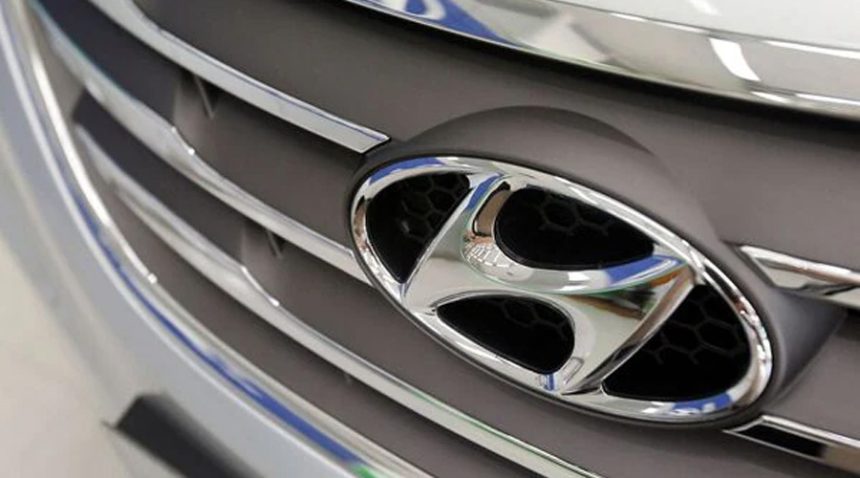Stay tuned as Hyundai drives the EV revolution forward, catering to every customer segment with innovation and sustainability
Hyundai, a major player in India’s automotive industry, is gearing up to strengthen its presence in the country’s electric vehicle (EV) market. With rising consumer interest in EVs and the government’s push for green mobility, Hyundai aims to capitalize on the shift toward electric cars. The company has set ambitious plans for its EV lineup in India, focusing on a mix of affordable and premium offerings to cater to diverse customer segments.
Hyundai’s Commitment to EV Expansion
Hyundai has committed to making India one of its primary markets for electric vehicles. The company recognizes the growing demand for EVs in the country and aims to be at the forefront of this transition. With multiple EV launches planned, Hyundai is focusing on a wide range of products to cater to different market segments. By 2028, Hyundai plans to introduce six battery electric vehicles (BEVs) in India, to capture a significant share of the EV market.
The company has already made progress in this direction with its existing EV, the Hyundai Kona Electric. The Kona, launched in 2019, marked Hyundai’s entry into India’s EV market. However, Hyundai understands the need to expand its lineup with more models to meet the diverse needs of Indian consumers. The company’s strategy revolves around product innovation, localization, and building a robust EV ecosystem.
Upcoming EV Models: A Balanced Lineup
Hyundai’s upcoming EV lineup in India includes both affordable and premium models. This balanced approach allows the company to tap into various price segments and appeal to a wider audience. Hyundai’s goal is to provide choices for first-time EV buyers as well as customers looking for advanced technology and premium features.
Hyundai Ioniq 5 – The Hyundai Ioniq 5 is expected to be a flagship model in Hyundai’s EV lineup. Built on Hyundai’s dedicated electric platform, E-GMP, the Ioniq 5 offers advanced features and impressive range. It is set to compete in the premium EV segment, appealing to customers looking for a stylish, high-performance electric car.
Hyundai Ioniq 6 – Another model on Hyundai’s roadmap is the Ioniq 6, a sleek sedan with a futuristic design. This model aims to cater to urban buyers seeking a luxury EV experience. With cutting-edge features and long-range capabilities, the Ioniq 6 will likely attract customers in the high-end market.
Affordable EVs – Recognizing the importance of affordability, Hyundai is also planning to introduce budget-friendly EVs tailored to Indian consumers. These models will be designed with cost-effective features and localized components, making them accessible to a broader audience.
Micro-Electric Vehicle – Hyundai is working on a compact EV, specifically targeting urban commuters and young buyers. This micro-EV will offer convenience and agility for city driving, making it an ideal choice for India’s densely populated urban areas.
Hyundai MPV EV – Hyundai plans to bring an electric multipurpose vehicle (MPV) to India, catering to families and group travellers. This model will likely offer spacious interiors and flexible seating arrangements, appealing to customers looking for a practical and eco-friendly vehicle.
Focus on Localization and Affordability
Hyundai recognizes that affordability is a key factor for EV adoption in India. To make its EVs more affordable, Hyundai is focusing on localization, including sourcing components from local suppliers and manufacturing key parts in India. By reducing import costs and leveraging local resources, Hyundai aims to make its EVs more competitively priced.
Localization also helps Hyundai adapt its EVs to the specific needs and preferences of Indian consumers. The company is working on improving the durability and efficiency of its batteries to suit Indian road conditions and climatic factors. This focus on localisation aligns with the Indian government’s Make in India initiative, which encourages automakers to produce vehicles domestically and reduce dependence on imports.
Building an EV Ecosystem
Hyundai is not just focusing on launching electric vehicles; it is also investing in building a robust EV ecosystem. This ecosystem includes charging infrastructure, battery solutions, and after-sales support. Hyundai understands that a comprehensive EV ecosystem is essential for the successful adoption of electric vehicles in India.
To address charging needs, Hyundai is collaborating with local partners to establish charging stations across the country. Hyundai aims to offer convenient charging options for its customers, reducing range anxiety and making EV ownership more accessible. The company is also exploring battery-swapping technology as an alternative solution, which could further enhance the EV experience for consumers.
Hyundai’s after-sales service network is being trained to support EV maintenance and repair, ensuring that customers have access to reliable support across the country. By building an ecosystem that includes charging infrastructure, service centres, and technical support, Hyundai is taking a holistic approach to promoting EV adoption in India.
Battery Technology and R&D Investment
Battery technology is a crucial component of Hyundai’s EV strategy in India. Hyundai is investing heavily in research and development to improve battery performance, longevity, and safety. The company is focusing on developing high-capacity batteries that offer long driving ranges, addressing one of the primary concerns for EV buyers in India.
Hyundai’s commitment to R&D includes exploring advanced battery chemistries and solid-state battery technology. These innovations could enhance battery efficiency and reduce charging times, making EVs more convenient for consumers. By investing in R&D and improving battery technology, Hyundai is positioning itself as a leader in India’s EV market, where range and charging speed are critical factors.
Government Initiatives and Support
Hyundai’s EV plans align with the Indian government’s initiatives to promote electric mobility. The government has introduced incentives under the Faster Adoption and Manufacturing of Hybrid and Electric Vehicles (FAME) scheme, which offers subsidies for EV buyers and manufacturers. Hyundai is leveraging these incentives to make its EVs more affordable for Indian consumers.
In addition, the government’s focus on expanding charging infrastructure and supporting battery manufacturing aligns with Hyundai’s ecosystem approach. By working alongside government initiatives, Hyundai aims to create a favourable environment for EV adoption in India. This collaboration with policymakers could play a pivotal role in accelerating Hyundai’s EV expansion plans.
Competing with Other Players
The EV market in India is becoming increasingly competitive, with players like Tata Motors, Mahindra Electric, and MG Motor making significant strides. Hyundai faces competition from Tata Motors, which leads the affordable EV segment with models like the Nexon EV. Tata’s success in this segment has set a benchmark for affordability, and Hyundai aims to match or exceed these standards through its localized production and cost-effective models.
Hyundai’s focus on premium and affordable segments helps it differentiate itself in the market. While Tata Motors and Mahindra Electric dominate the affordable EV space, Hyundai’s premium models, such as the Ioniq 5 and Ioniq 6, target a different consumer base. This dual approach allows Hyundai to appeal to a broader spectrum of buyers and compete effectively across various segments.
Hyundai’s Vision for the Future
Hyundai’s vision for the Indian EV market is ambitious. The company aims to be a leading EV player by offering a diverse lineup of electric vehicles and building a comprehensive ecosystem. Hyundai’s strategic focus on affordability, localization, and technology innovation positions it well to capture market share in India’s evolving EV landscape.
Hyundai’s efforts to develop a reliable charging network, improve battery technology, and offer high-quality after-sales support reflect a long-term commitment to the Indian market. By focusing on these areas, Hyundai aims to create a sustainable and customer-centric EV experience. As the demand for electric vehicles continues to grow, Hyundai’s proactive approach ensures it remains a strong competitor in India’s EV sector.
Conclusion
Hyundai’s plan to compete in India’s EV market is comprehensive, involving product innovation, localization, and ecosystem development. With a balanced lineup of affordable and premium models, Hyundai is well-positioned to cater to diverse customer segments. The company’s commitment to building a robust EV ecosystem, coupled with investments in battery technology and charging infrastructure, strengthens its position in the market.
As Hyundai rolls out new models like the Ioniq 5, Ioniq 6, and affordable EVs, it aims to capture a significant share of India’s growing EV market. The combination of strategic pricing, localized production, and government support creates a favourable environment for Hyundai’s expansion. Hyundai’s approach to competing in the Indian EV market reflects its adaptability, vision, and commitment to sustainable mobility, making it a key player to watch in the coming years.






